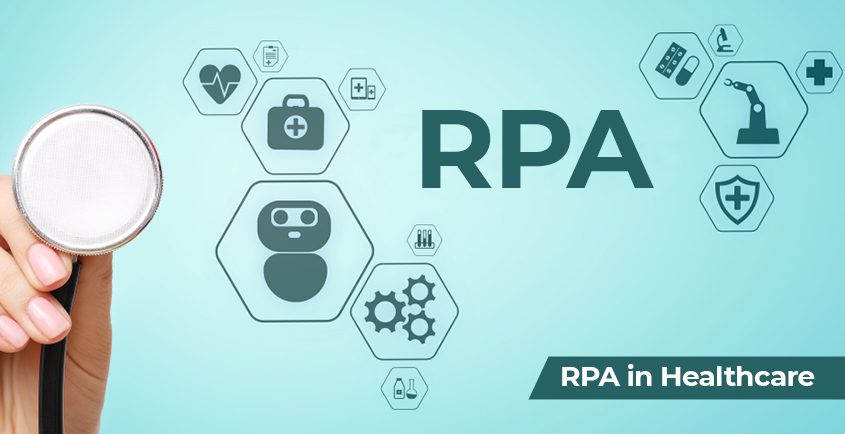 The appearance of RPA in healthcare operations will automate different complex functions for medicinal experts and executives in clinics and hospitals. With the assistance of RPA, healthcare foundations can improve their productivity and offer better medical care for their patients.
The appearance of RPA in healthcare operations will automate different complex functions for medicinal experts and executives in clinics and hospitals. With the assistance of RPA, healthcare foundations can improve their productivity and offer better medical care for their patients.
Clinics and medicinal offices have a critical role in saving lives and giving quality consideration to their patients. In a high-stress condition like healthcare, it’s ideal to attempt to work as streamlined and productive as possible. Furthermore, when lives are hanging in the balance, there’s no space for operational delays or a human error.
With robotic process automation, medical facilities can improve effectiveness, exactness, and security by taking care of manual, repetitive workloads over to software robots. RPA in healthcare operations effectively automates any time-consuming task so you can concentrate on providing your patients with optimal care.
Why RPA in Healthcare?
Admission Procedures
The patient admission process mostly goes from one work area to another work area, setting aside a longer wait time for patients. Automating admission procedures can save time, improve the patient experience and generally upgrade successful operational methods. In a regular admission process, a lot of hold up time can be saved if RPA is implemented.
Emergency Operations and Critical Care
For emergency room processes and critical care, numerous hospitals experience overpowering tasks as it is associated with center procedures like enlistment, registration, and accessibility of doctors and masters. If these procedures are not streamlined with RPA, patients may wind up waiting too long for treatment. During critical care and emergency, serving the patients in a convenient way is exceptionally vital.
Rising Costs
Macroeconomic variables like insufficient public funding and aging populations are challenging the two beneficiaries and suppliers of human services. It is fundamental for health care systems to move in the direction of progressively streamlined procedures to save money and cut health care costs.
Increase Efficiency by Integrating Third-Party Tools
Serve as the agent between third-party tools that don’t “talk” to one another. This allows for information sharing and preparing between the tools without human intercession.
Revenue Cycle Management
RCM in healthcare operations plays a crucial job in keeping up the long-term achievability and benefit of healthcare providers. Revenue cycles should be upgraded by decreasing the time required between payments and patient services delivery. RPA can help diminish claim resolution timelines and claim denials, get rid of manual issues and empower quicker preparing of transactions.
Streamline Claims Processing
Effectual claims preparing and the management are perhaps the greatest obstacle in the realm of administration and hospital finances. The hospital operations that process claims precisely and effectively are much closer to remaining financially stable than hospitals that don’t.
RPA can help streamline the complicated, manual procedure of claims processing. With an automated file transfer, you can automate the daily transfers of people claims documents (both inpatient and outpatient) to an FTP server. At that point, when the records are distinguished on the FTP server, an RPA errand is started that joins all the inpatient documents together and all the outpatient documents together and safely moves them from the health data framework to the cases the claims management system.
Decrease Manual Data Entry
At the point when data is stored over various frameworks, total the information and enter it into a central patient accounting system
Healthcare Operations and the Human Touch
RPA is the first small step toward a future where computer systems are increasingly self-sufficient, and the greater desire of real artificial intelligence can be figured it out. In any case, it’s essential to keep a point of view.
RPA is without a doubt changing work environment elements by assuming control over actions that people recently oversaw. But, generally, the point isn’t to replace humans. Rather, it can free representatives to use their potential through progressively important work that requires social knowledge, complex basic reasoning and inventive critical thinking.
No place is this more genuine than in the health care sector, and in emergency clinics specifically. Care arrangement is about the human touch, and the selection of digital technologies that can expand the capability for medical-care experts to concentrate on human cooperations must be invited.





Recent Comments